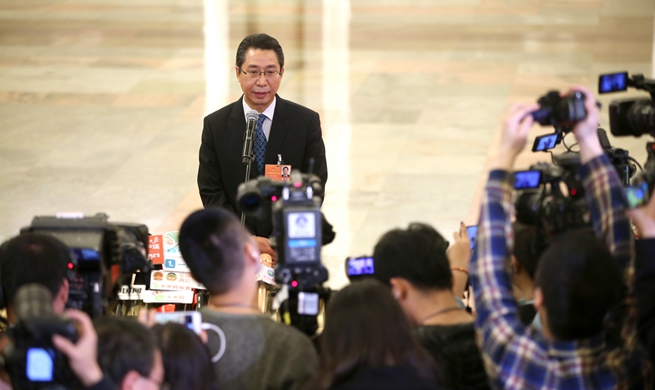CHICAGO, March 13 (Xinhua) -- Relying on functional MRI to track activity in the brains of 17 individuals undergoing an image-rating task, the researchers of University of Illinois (UI) have gained new insights into how emotional regulation influences negative feelings and memories.
The study revealed similarities and differences between those who were explicitly told to suppress negative feelings while rating the negativity of negative images and those unconsciously prompted to do so.
Both overt and covert emotional suppression reduced participants' memory of the negative images one week later, the study found. But the two approaches had different effects on participants' immediate experience of emotions associated with the images, and on how their brains processed the images.
At the beginning of the study, researchers asked participants to rate 180 negative and neutral photos. They then repeated the activity, some after being instructed to dampen their negative emotional responses to negative photos, and some after reading materials designed to unconsciously prompt emotional control.
Both conscious (explicit) and unconscious (implicit) emotional suppression reduced participants' ability to remember the negative images one week later. However, compared with how they felt when viewing negative images initially, only those explicitly told to inhibit their negative emotions felt less negative when viewing negative photos.
The functional MRI data revealed that explicit, but not implicit, emotional suppression lessened activity in the amygdala, a brain region that aids in emotional processing, according to the research, which has been reported in the journal Neuropsychologia.
However, both forms of emotional suppression were associated with reduced functional connectivity in brain regions that help encode emotional memories, the researchers found. This may explain why both explicit and implicit emotional suppression reduced participants' memory of negative photographs.
"Suppressing emotions appears to reduce negative memories, whether you do that consciously or unconsciously," said UI graduate student Yuta Katsumi, who conducted the research following UI psychology professor Sanda Dolcos. "But explicit emotional suppression takes effort. You have to have enough cognitive resources to do that, and people with clinical conditions might not be able to afford those resources."
Other studies suggest that implicit, unconscious suppression of negative emotions "might help people with already-limited cognitive functioning" to be less burdened by negative memories, Katsumi said.

















